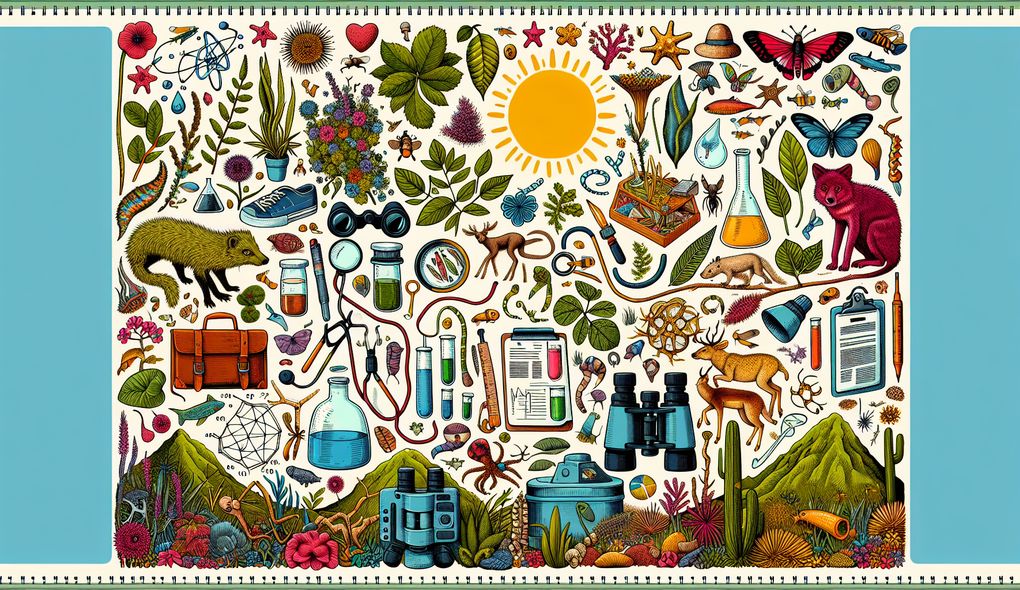How do you stay updated with the latest conservation research and integrate new findings into practice?
SENIOR LEVEL

Sample answer to the question:
I stay updated with the latest conservation research by regularly reading scientific journals and attending conferences and workshops. I also follow reputable conservation organizations and research institutions on social media and subscribe to their newsletters. To integrate new findings into practice, I collaborate with colleagues and stakeholders to discuss the implications of the research and brainstorm innovative approaches. I also stay in touch with the local community and indigenous groups to learn from their traditional knowledge and practices. This helps ensure that our conservation efforts are effective and culturally sensitive.
Here is a more solid answer:
To stay updated with the latest conservation research, I make a deliberate effort to regularly read scientific journals and publications relevant to my field. Additionally, I attend conferences and workshops focused on conservation biology to learn about cutting-edge research and connect with other experts in the field. I also participate in online forums and engage with reputable conservation organizations on social media to stay informed about new findings and innovative practices. To integrate these new findings into practice, I actively collaborate with my team and other stakeholders. We discuss the implications of the research and brainstorm ways to incorporate the findings into our conservation plans. I also ensure that I am up to date with the local community's needs and concerns, as well as indigenous groups' traditional knowledge and practices. This helps me develop culturally sensitive conservation strategies that are effective in protecting biodiversity.
Why is this a more solid answer?
The solid answer provides more specific details about the candidate's methods of staying updated with the latest conservation research and integrating new findings into practice. It addresses the evaluation areas and job description requirements more comprehensively by mentioning the candidate's experience reading scientific journals, attending conferences and workshops, and engaging with online forums and reputable organizations. The candidate also emphasizes the importance of collaboration, specifically mentioning how they actively involve their team and stakeholders in discussing research implications and incorporating new findings into conservation plans. Additionally, the candidate highlights the significance of being culturally sensitive by considering the local community and indigenous groups' traditional knowledge and practices. However, the answer could still benefit from including more examples or specific instances where the candidate has successfully integrated new research findings into practice.
An example of a exceptional answer:
As a conservation biologist, I understand the importance of staying at the forefront of the latest conservation research and integrating new findings into practice. To achieve this, I employ a multifaceted approach. Firstly, I maintain a comprehensive library of scientific journals and publications relevant to my field and make it a priority to read and critically analyze these materials regularly. Attending national and international conferences and workshops is another essential part of my professional development. These events allow me to engage with fellow researchers and experts, exchanging findings, ideas, and innovative approaches. Additionally, I actively participate in online forums and professional networks dedicated to conservation biology, where I can keep abreast of emerging research trends and collaborate with colleagues on current projects. To ensure that the latest research is effectively integrated into practice, I foster a culture of collaboration and continuous learning within my team. We conduct regular brainstorming sessions, where we discuss the implications of new research findings and devise strategies to implement them in our conservation efforts. Moreover, I maintain strong connections with local communities and indigenous groups. By actively involving them in our projects, we can incorporate their traditional knowledge and practices, which further enriches our conservation strategies. Taking a holistic approach to staying updated with the latest conservation research and integrating new findings into practice allows me to make well-informed decisions and contribute meaningfully to the field.
Why is this an exceptional answer?
The exceptional answer goes above and beyond in providing comprehensive details about how the candidate stays updated with the latest conservation research and integrates new findings into practice. The candidate outlines a multifaceted approach, which includes maintaining a comprehensive library of relevant scientific journals, attending conferences and workshops, and actively participating in online forums and professional networks. The answer also highlights the importance of fostering a collaborative environment within the team, conducting brainstorming sessions to discuss research implications, and involving local communities and indigenous groups to incorporate traditional knowledge and practices. The candidate demonstrates a strong commitment to continuous learning and professional development. The answer could benefit from including specific instances or examples where the candidate has successfully integrated new research findings into their conservation work.
How to prepare for this question:
- Stay updated with the latest conservation research by regularly reading scientific journals and publications relevant to the field.
- Attend national and international conferences and workshops focused on conservation biology to learn about cutting-edge research and connect with experts in the field.
- Participate in online forums and engage with reputable conservation organizations on social media to stay informed about new findings and innovative practices.
- Develop strong relationships with colleagues and stakeholders to foster collaboration and facilitate the integration of new research findings into practice.
- Engage with local communities and indigenous groups to learn from their traditional knowledge and practices and incorporate them into conservation strategies.
What are interviewers evaluating with this question?
- Field research methods and data collection
- Analytical and problem-solving skills
- Communication and interpersonal skills
- Collaboration across teams
- Leadership skills and team management

